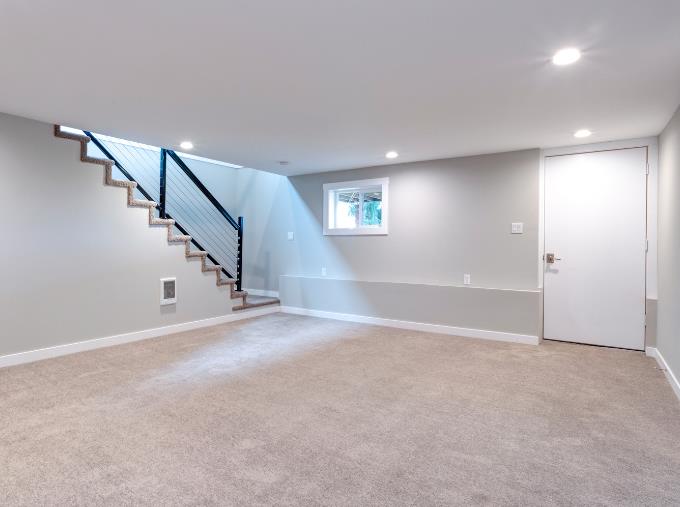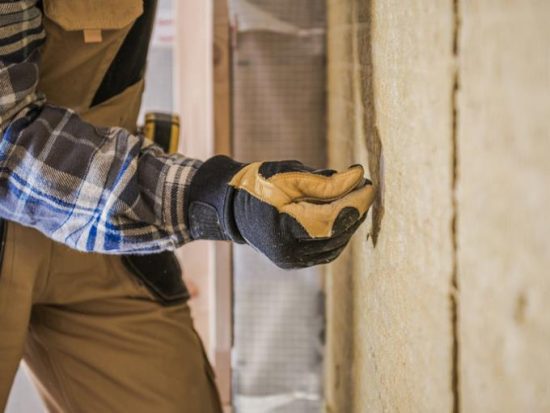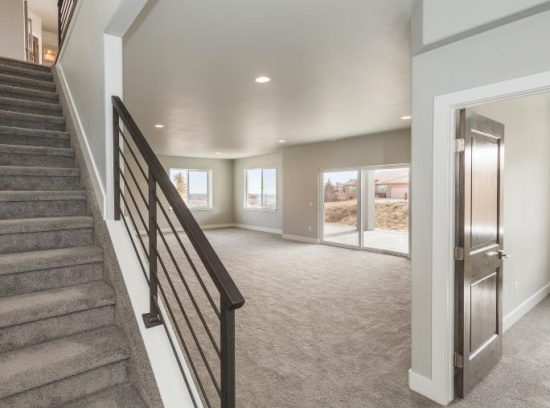How Much Does It Cost to Finish a Basement?

When a basement is finished, it can be transformed from a cold, empty concrete box into a comfortable, welcoming living area. In this in-depth blog, let us look at how much does it cost to finish a basement including all the expenses related to this home renovation project, covering everything from labor and materials to permits. This home upgrade could raise the value of your property on the market and add usable space. The options are unlimited when designing a new family room, home office, or home theater. Careful planning and budgeting are crucial to guarantee that the project fulfills your needs while staying within your means.
Understanding the Basics: Permits and Preparations
Obtaining the required permits is essential before starting any renovations. These legal authorizations guarantee that your project conforms to regional safety and building requirements. Permits cost anything from $1,000 to $1,500 on average. Depending on your region and the project size, the cost may change. It’s best to speak with professionals or local officials to determine the exact criteria in your area. Ignoring this step could result in expensive fines and other issues that could completely stop your renovation. Furthermore, by guaranteeing that all alterations are approved by law, appropriate paperwork and permits can promote a more seamless project workflow and raise the value of your house when you decide to sell it.
Breaking Down Material Costs
Materials are needed for a significant portion of the expenses of finishing a basement. The selection ranges from essential construction elements to finishes like flooring and paint.
-
Framing and Insulation

The secret to creating a comfortable basement is proper insulation. Generally, wall framing and insulation run between $1.50 and $3 per square foot. Not only does insulation help regulate temperature, but it also enhances soundproofing, increasing the space’s versatility. The kind of insulation used and the difficulty of the installation can affect the price. The structural stability and layout of your completed basement are provided by proper framing, which calls for precise measurements and skillful labor.
-
Drywall Installation
Installing drywall is an essential step in creating defined spaces. This will set you back about $10 to $20 per sheet, with labor costs additional. Drywall provides a smooth, paintable surface and is crucial for defining rooms and providing fire resistance. Installation typically involves measuring, cutting, and securing the drywall panels to framing, which requires skill to ensure a seamless finish. The total cost can vary depending on the basement size and the panels’ thickness.
-
Flooring Options
Flooring can vary from laminate to carpet or tiles, averaging $3 to $12 per square foot. Choosing the right flooring depends on the intended use of the basement and personal aesthetic preferences. For instance, tiles offer durability and moisture resistance, making them ideal for basements prone to dampness. Carpet adds warmth and comfort but might not be suitable for high-moisture areas. Laminate offers a cost-effective and attractive look that mimics hardwood without the associated costs.
-
Ceilings and Lighting

Drop ceiling and basic lighting installations cost around $2 to $5 per square foot. Drop ceilings are popular in basements because they provide easy access to plumbing and electrical systems and a finished look. Lighting is critical in basements, which often lack natural light, requiring careful planning to create a bright and welcoming environment. Combining various types of lighting, like ambient, task, and accent lighting, will increase the functionality and aesthetics of the space. The cost can increase if specialized or high-quality light fixtures are selected.
-
Labor Costs
Labor is another significant expense and can significantly influence the total cost of finishing your basement. Skilled labor for electrical work, plumbing, and carpentry typically costs $50 to $100 per hour. Investigating these costs early on is essential to manage your budget effectively. Hiring experienced professionals ensures that the work is done correctly and up to code, which can prevent costly mistakes or rework. Depending on the difficulties and scale of the project, labor can often be the most significant portion of your budget.
Opting for skilled labor also means faster completion and higher quality finishes, which can enhance the long-term value of the space. Planning for these expenses involves obtaining multiple quotes and selecting contractors with the best price, expertise, and reliability balance. Proper vetting and choosing the right contractors can make vital changes in the outcome of your basement renovation project.
Additional Considerations and Costs
Beyond the basics, there are additional factors that could affect your overall spending:
- Electrical and Plumbing: Depending on whether you’re adding bathrooms or kitchen facilities, plumbing and electrical installation can significantly increase costs, typically ranging from $2,000 to $5,000. These systems must meet specific codes and regulations involving extensive wiring and pipe fitting, especially if the original basement needed to be designed with these facilities in mind.
- Custom Features: Items such as built-in shelving or custom bars will add to the total, with prices varying based on complexity and materials. Such features enhance your basement’s functionality and aesthetic appeal but require skilled craftsmanship and possibly expensive materials.
Adding advanced technology systems for home theaters or soundproofing for music rooms can also drive up costs. These specialized installations require professional expertise and high-quality materials, reflected in their higher price tags. Deciding on these features early in the planning stage is crucial to integrate them smoothly into the overall design and budget.
Calculating the Total Investment
The average expense to finish a basement can typically range from $25,000 to $50,000, depending on the size of your space and your choices regarding materials and labor. This figure is just an average; some homeowners may spend less while others invest more, especially if high-end finishes or extensive custom work is involved. It’s essential to remember that the return on investment can also be significant, as a well-finished basement often adds substantial value to a home.
Factors such as geographic location and the current housing market can also influence the cost and the return on investment. Proper budgeting and planning for unforeseen expenses, such as structural repairs or waterproofing, can help avoid financial overruns. Ultimately, investing in a basement finish is about adding extra space and enhancing the quality of living and potential future resale value.
Conclusion
In conclusion, understanding the cost of finishing a basement requires thoroughly assessing various factors. By breaking down each component—from permits to materials and labor—you can better manage your budget and ensure the successful completion of your basement project. Whether you are looking for a simple space refresh or a complete transformation, planning your budget with these considerations will help streamline your renovation.
FAQ
How much does it typically cost to finish a basement?
The average expense will be between $25,000 and $50,000. This range depends on the size of the basement, the quality of products used, and the project’s complexity.
What are the main costs involved in finishing a basement?
The main costs include permits, materials, and labor. Permits can cost between $1,000 and $1,500, materials vary significantly based on choices, and skilled labor usually varies between $50 to $100 per hour.
Why is securing permits essential before starting a basement renovation?
Securing permits ensures the renovation complies with local building codes and safety standards. It also helps avoid legal and financial complications that could arise from non-compliance.
What are some common materials needed for a basement finishing project?
Common materials include framing and insulation, drywall, flooring options such as laminate or carpet, and ceiling. Costs can vary based on the type of materials selected.
Can adding custom features to a basement increase the overall costs?
Adding custom features like built-in shelving, custom bars, or advanced technology systems for home theaters can significantly increase costs. These require more materials and skilled labor.
